St. Thomas student-athletes now have to travel hundreds of miles to compete with other Division I schools, and the increased travel has a significant impact on student-athletes’ college experience.
With less time in the classroom and more time on the road, one concern is that student-athletes’ academic success will suffer. While Division III required players to balance athletics with academics, the added demands of DI has intensified that balancing act.
“Our travel compared to last year is absolutely insane,” junior soccer player Shannon McWilliams said. “We never went anywhere more than a two and a half hour bus ride away. Now the shortest bus ride we have is five hours.”
When McWilliams joined the women’s soccer team, it was at the Division III level and travel requirements were mostly limited to schools in the MIAC – a 2.5-hour drive would bring them to their furthest opponent, St. Scholastica, in Duluth, Minnesota.
The two-level leap to DI meant the women’s soccer team would need to board a plane, not a bus, to reach some Summit League opponents like the University of Denver. Even closer to home, South Dakota State is still a 4-hour drive from St. Thomas.
“Preparing and time management for my classes has definitely increased for sure,” McWilliams said.
Women’s soccer isn’t the only team trekking farther to compete. The Pioneer Football League includes schools in San Diego and Florida and the WCHA and CCHA stretch out to Ohio.
Leaving the local area has required student-athletes to miss multiple classes for games this year, adding more stress to their busy schedules.
“Stress? 110%. It’s definitely a huge increase,” McWilliams said. “For class on Wednesday and Friday mornings, I think I’ve missed half the classes already.”
The university does offer resources for student-athletes, however; A team at St. Thomas’ academic support services for athletics works to minimize the impact sports-related travel has on players’ academic performance.
“We work with sports administrators and coaches to minimize student-athletes being out of the classroom as much as possible,” said Michelle Smith-Ware, director of the service.
There are measures in place to help student-athletes find ways to succeed in the classroom, even if they cannot always be there. One requirement St. Thomas student-athletes must fulfill is a certain amount of study hours while on the road.
“Where they have downtime they’re always bringing their books and their laptops to complete assignments in the space and time they’re in,” Smith-Ware said. “So that academic component is always there.”
There are also NCAA academic requirements and academic support requirements that are in place for student-athletes, such as minimum GPA and number of courses taken.
“What we’re doing is solidifying those support systems and building that framework,” Smith-Ware said. “So that our student-athletes are supported with that main goal of completing their St. Thomas degree.”
Increased travel could affect more than just academic performance, however. Another concern is the impact it could have on athletic performance.
McWilliams cited an instance when her team had to catch a flight and a bus ride on game day after their original flight was delayed
“That just really messed with our heads that day,” McWilliams said. “Delays and stuff like that’s really affecting us as players.”
McWilliams also said that the increased travel can be frustrating, as constantly leaving campus makes it hard to engage with the St. Thomas community.
“We’re missing school and connecting with people because we’re traveling so much,” McWilliams said.
On the other hand, the DI travel requirements allow student-athletes to see new parts of the country and spend more time with their teammates.
“I think flying brings new opportunities, and new places we can go outside of the Midwest,” McWilliams said. “I think there’s more team bonding that happens, and more communication, and more conversation.”
Derek Badger can be reached at badg7629@stthomas.edu.

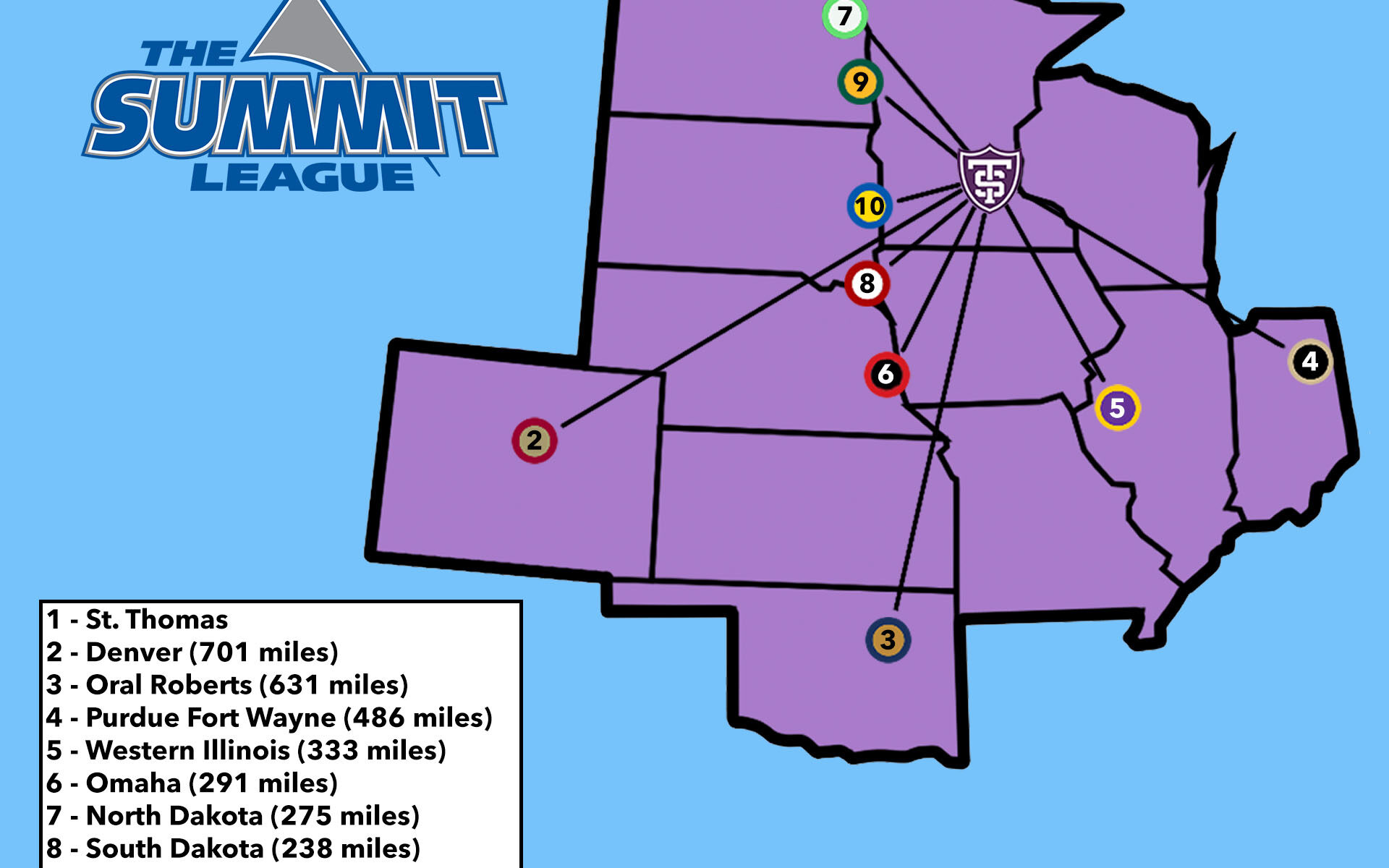

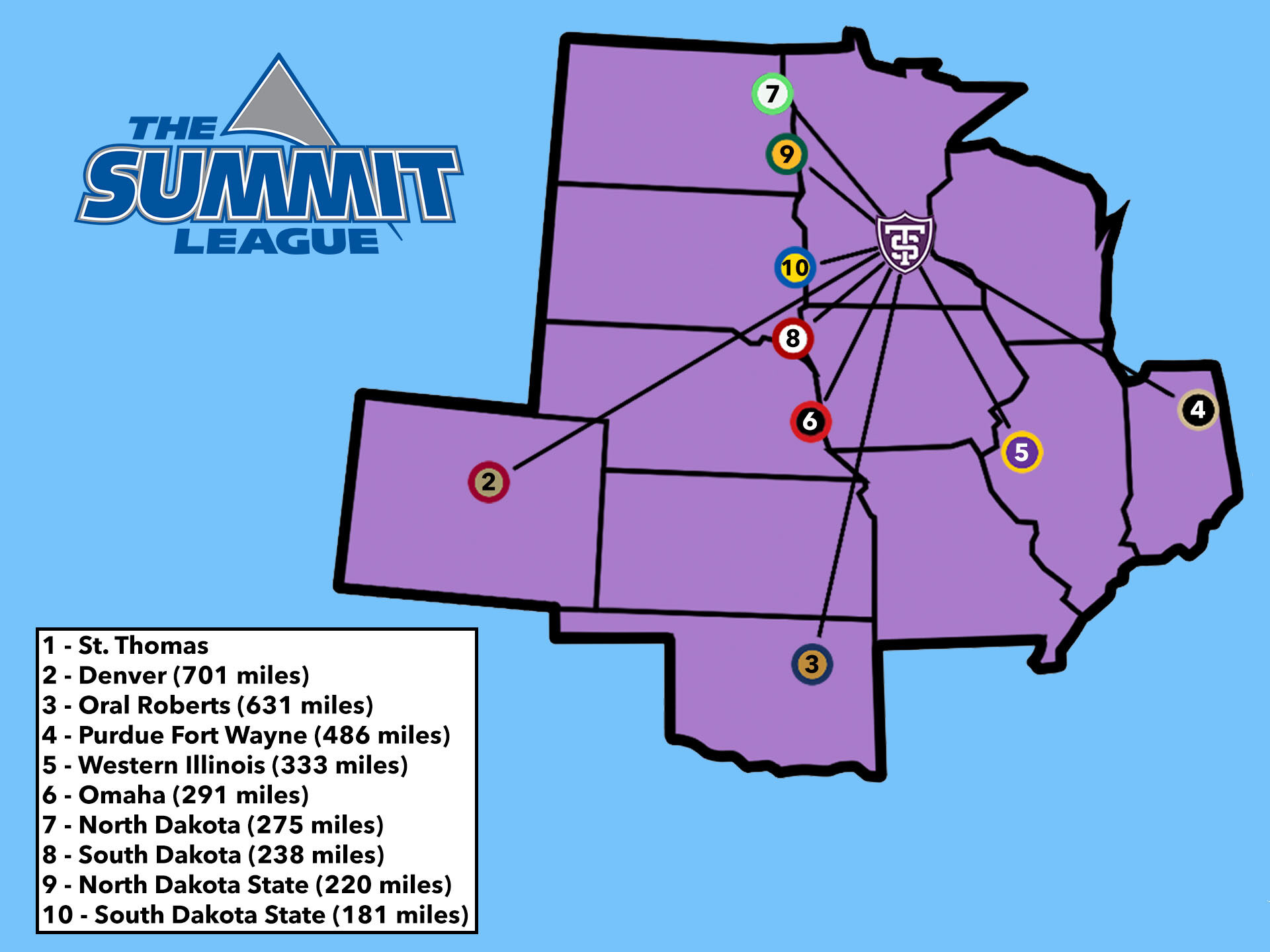
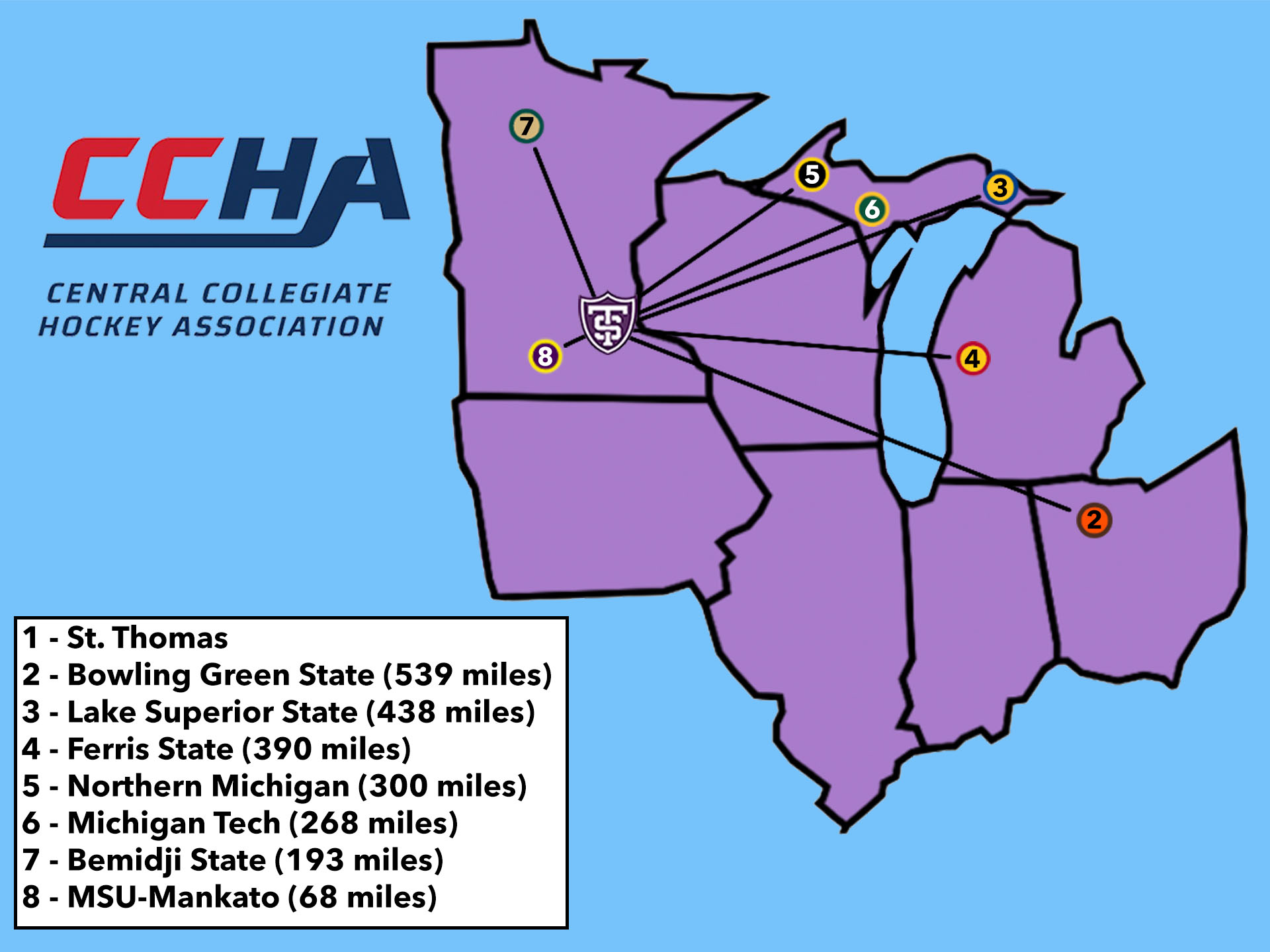
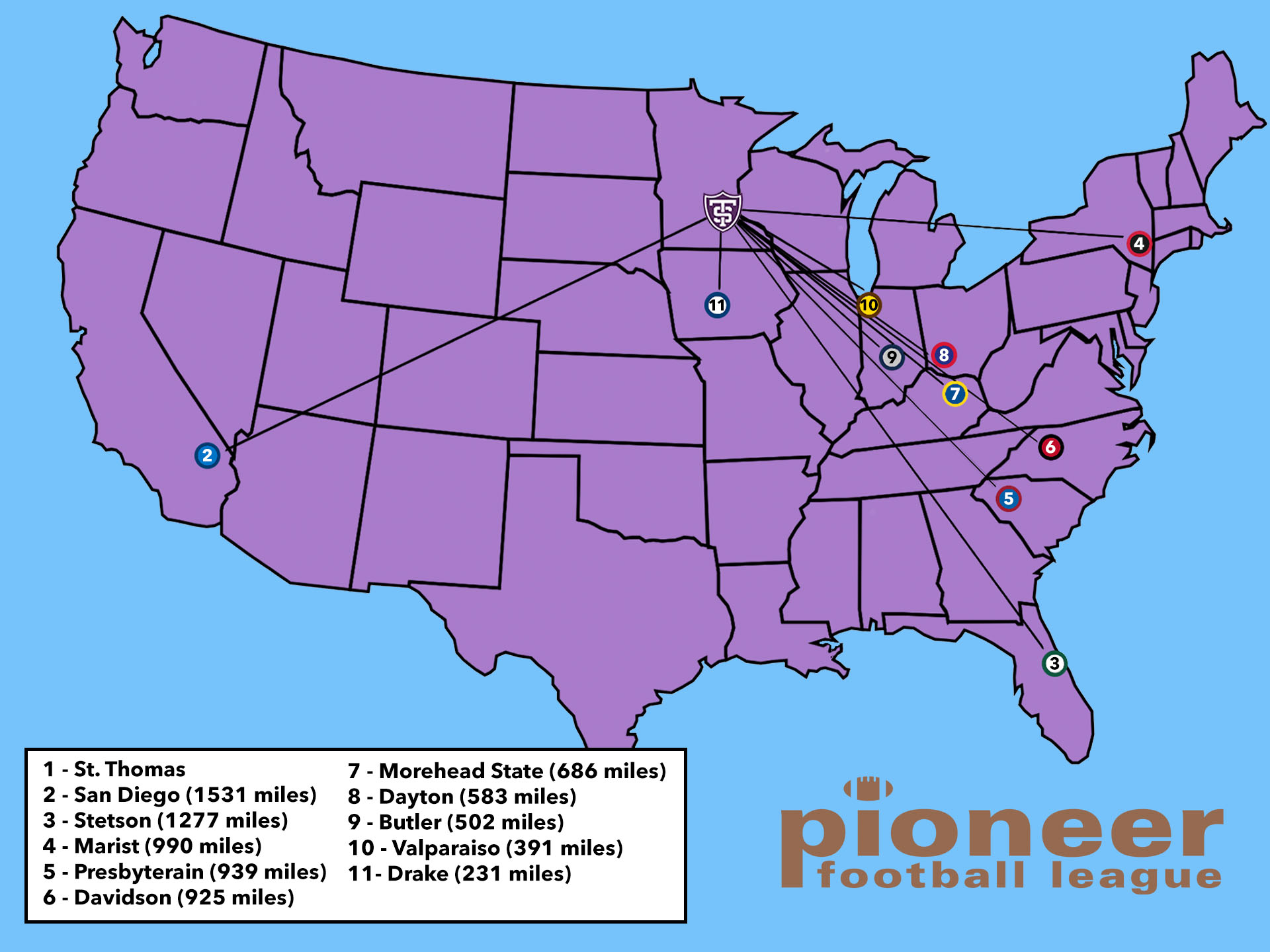
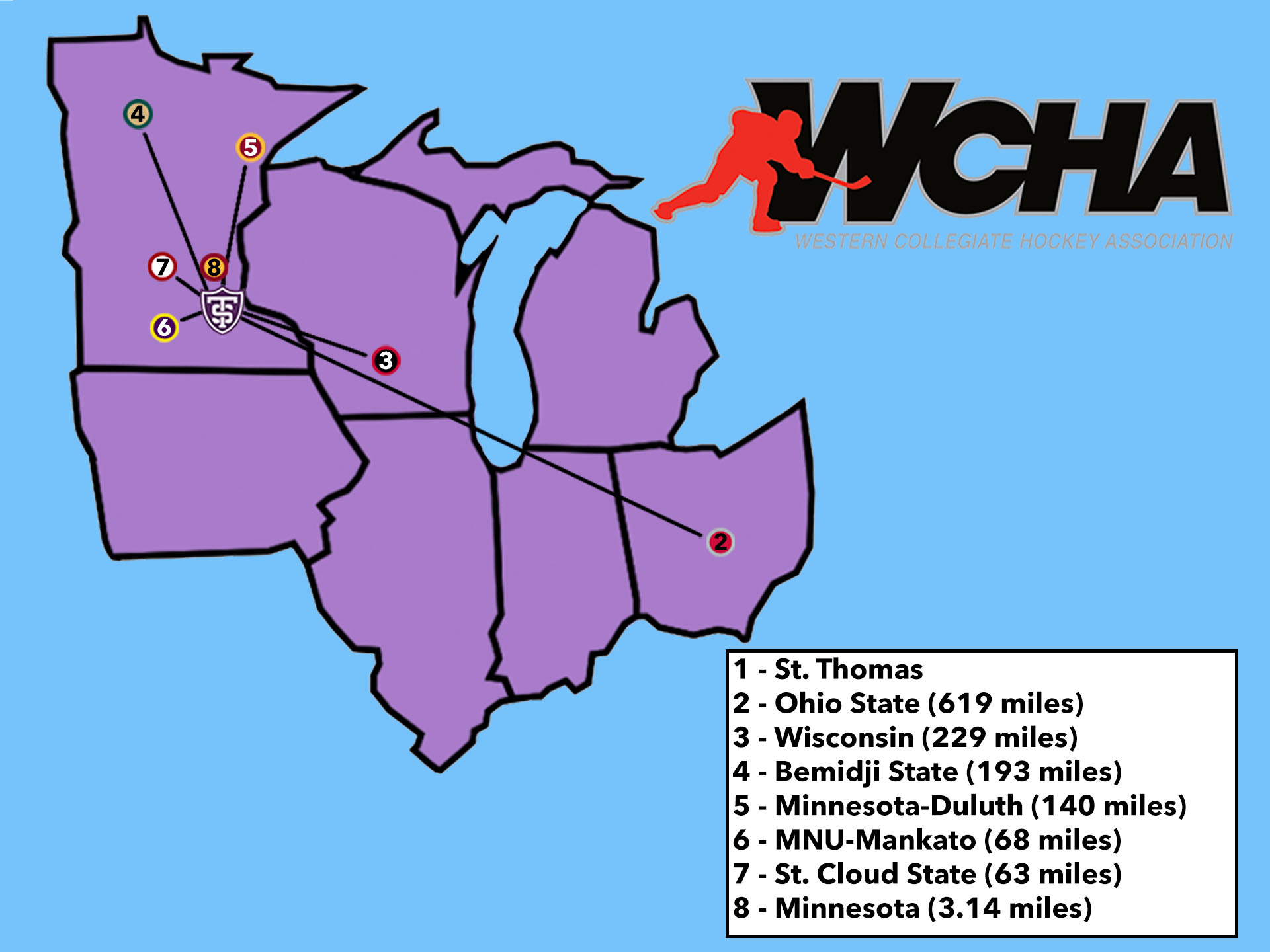
Lots for expenses too.
Lots more travel expenses too.